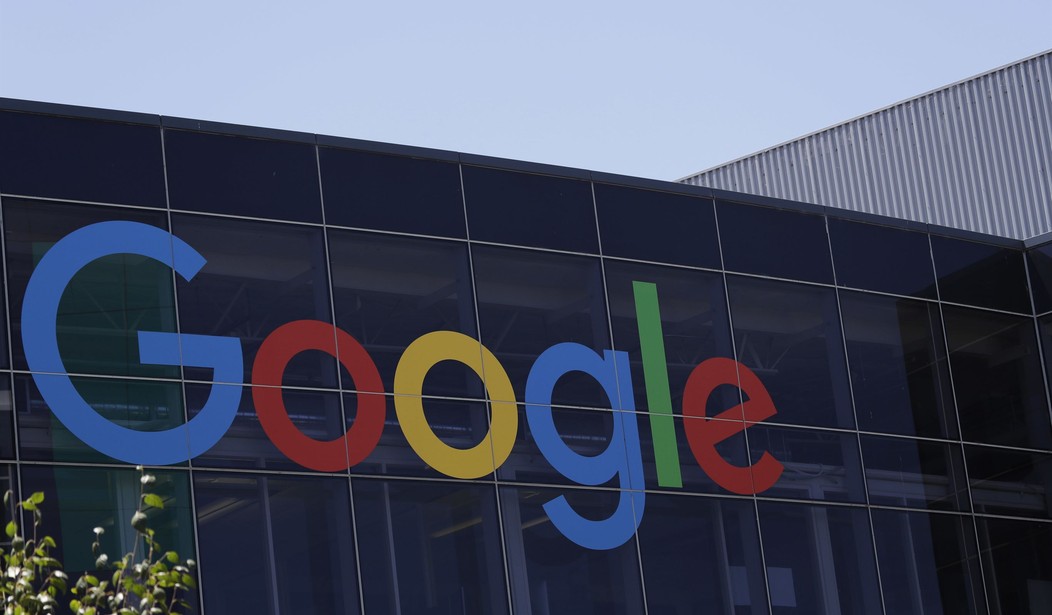In 2008, in the midst of our financial meltdown, future-Obama White House chief of staff Rahm Emanuel infamously proclaimed: “You never want a serious crisis to go to waste. I mean, it’s an opportunity to do things that you think you could not do before.”
Following Rahm Emanuel’s playbook today, Big Tech is attempting to capitalize on the coronavirus, the Wuhan-originated pandemic which may cause the biggest public-health and financial crisis we’ve ever faced, by making wholly unrelated demands for: (1) blanket amnesty from antitrust laws; and (2) continued coddling by Uncle Sam (since 1996) in the form of the sweetheart Section 230 immunity Big Tech enjoys from defamation lawsuits based upon what their users post online (while Big Tech continues to hugely profit from those defamatory posts).
And how does Big Tech justify their unrelated demands during a crisis? Because Google built a single website under pressure from the President of the United States? (Let’s remember, Google didn't build this coronavirus website simply because they are Good Samaritans. Google will likely hugely profit from the massive amounts of personal-health data that it will collect. Again, Google won’t let this crisis go to waste.)
To give you a flavor of just how tone deaf the tech lobby is, consider the recent plea from Google-funded AEI entitled “COVID-19 has demonstrated the folly of some tech policies.” Among other items, AEI calls for antitrust agencies to drop investigations into platforms like Google because “left to their devices” the agencies “could destroy the very systems that provide critical functions during the crisis.” For AEI, it is as if Google is the Internet; as if Google is single-handedly saving the world from COVID-19, a billion dollars at a time. As if, yet again, Google should be above the law.
Recommended
In making its argument, AEI misses the entire lesson in COVID-19 for internet policy. It is most certainly not that antitrust investigations into Google should be dropped. Quite the opposite. If anything, the past weeks have shown just how unfulfilled the promise of the internet actually is because of companies like Google. This unfulfilled promise is due to behemoth platforms such as Google that have stymied innovation and competition from upstart rivals that might, actually, have made a difference at a time like this. In other words, the lack of innovation due to Google’s anticompetitive conduct is precisely why we have the sub-optimal internet we have.
As Peter Thiel would say, “they promised us flying cars and we got 140 characters.“ Or, in Google’s case, they promised us the world and we got a website that tracks our sensitive health data – and again, Google will hugely profit from amassing and commercializing this data.
And AEI is not alone or even the worst offender among Google’s many DC proxies. No, that award goes to Berin Szoka, who recently had to step down from his perch heading TechFreedom, a Trump-hating libertarian, pro-tech think tank. Szoka took his advocacy a bridge too far, even for Google, when he wished for the President to contract COVID-19 and die, questioning whether there could be “any greater poetic justice” at a time when our country is under siege.
In the real world outside of the Big Tech bubble, the COVID-19 crisis has seen a lot of companies and their employees step up to the plate. Car manufacturers are pivoting to ventilators; broadcasters are creating makeshift news studios via Zoom; and mom-and-pop distilleries are manufacturing hand sanitizer instead of bourbon. Of course, these private-sector efforts pale in comparison to the true heroes in the COVID-19 battle: the first responders, doctors, nurses, paramedics, and others who are risking their lives to save others. At the New York City Fire Department, on March 18 three members tested positive for the virus. At the time of writing, that number had risen to over 200. Their sacrifice and that of their families cannot be overstated. Our thoughts and prayers go out to them all.
The whole nation is gradually shifting to a war footing in order to defeat an invisible enemy. We are also increasingly relying on the internet for our day-to-day existence. In turn, the internet is gradually fulfilling its original promise to be the failsafe communications network in a national disaster (albeit not the nuclear attack assumed by its design). We have watched in wonder as work meetings have shifted to online platforms; children are educated online and safely at home; and our groceries are delivered via an (almost) touchless supply chain. To nourish the soul, museums are opening up their virtual doors; churches are streaming services; and musicians are joining forces to stream symphonies into our homes. Everyone is stepping up in their own unique way, including broadband providers who are keeping internet access up and running.
So why, then, as the whole economy swings into action in our nation’s hour of need, are Google and its DC proxies calling for an end to the techlash – or the criticisms and demands for accountability of Big Tech for their many years of bad acts?
And why is no one calling out Google and its proxies for choosing this national emergency to call for yet more sweetheart deals from the government – that is, antitrust amnesty and continued Section 230 immunity?
Good questions. Until now.
The internet can do better than Google, AEI, and Berin Szoka. So too can the country. In making these unrelated demands, especially during a crisis, Big Tech continues to act like the 30-year-old who refuses to leave their parents’ basement – and complains about the food. It’s time for Big Tech to grow up – and step up, like the rest of us.
























Join the conversation as a VIP Member